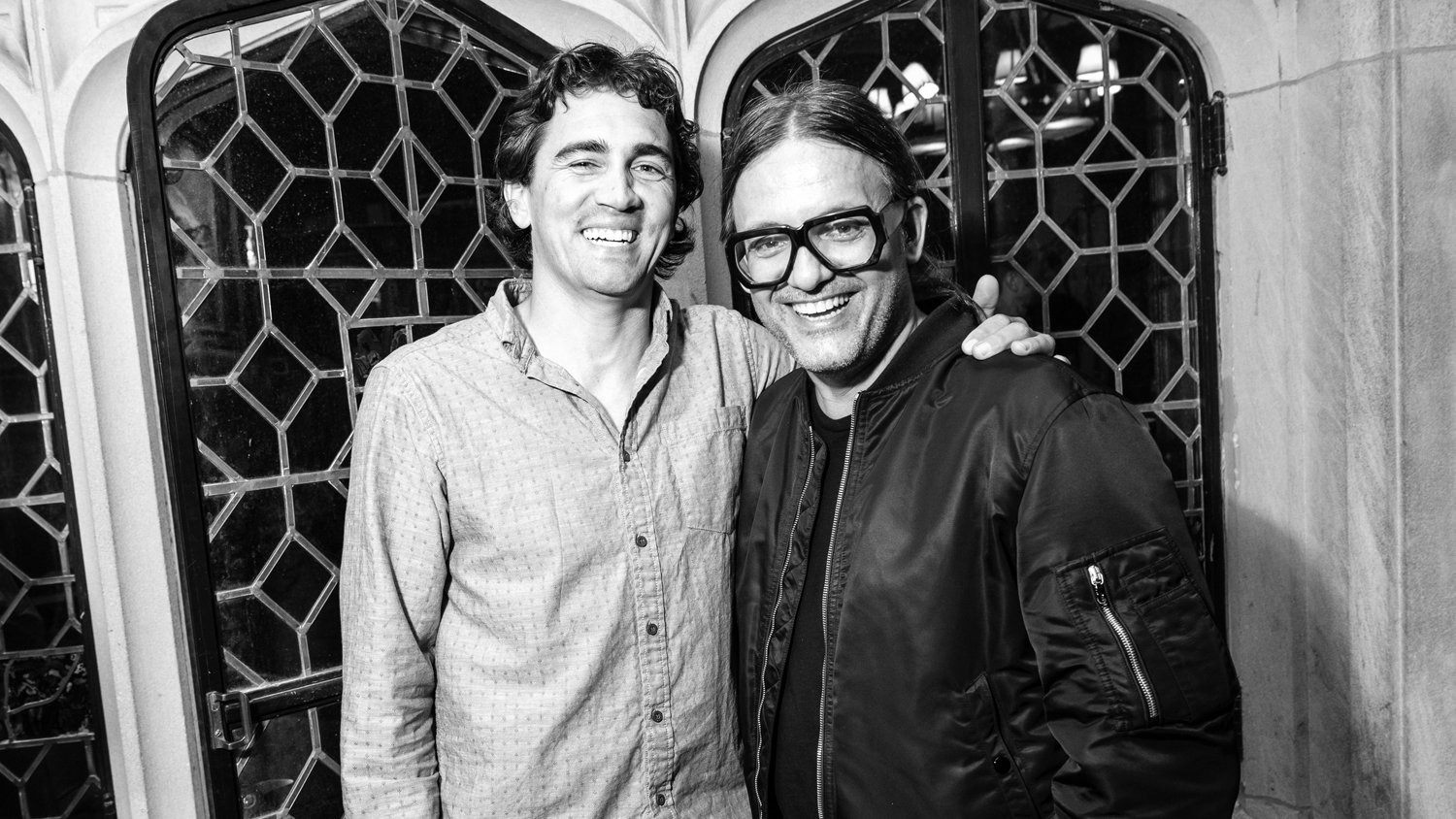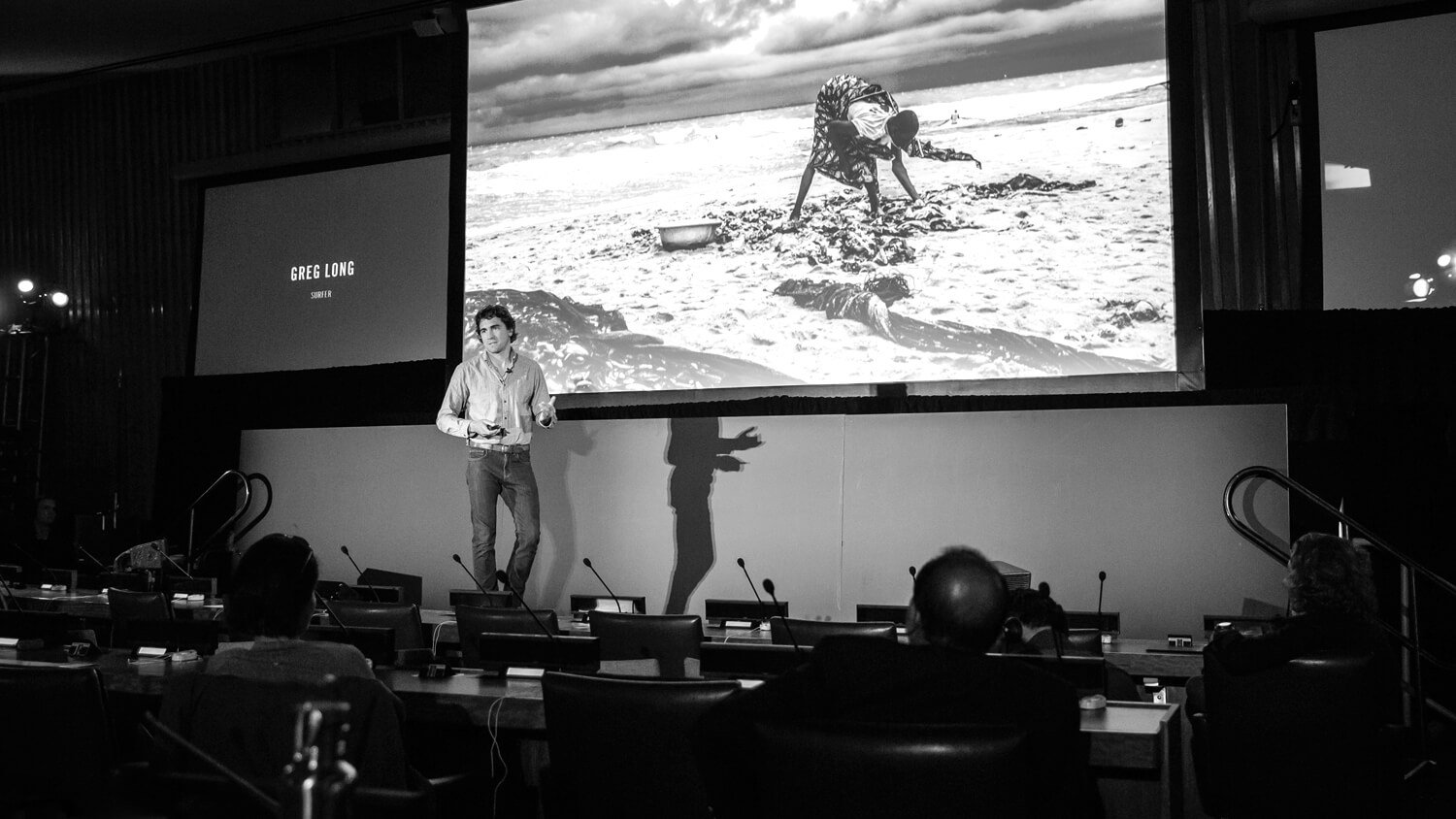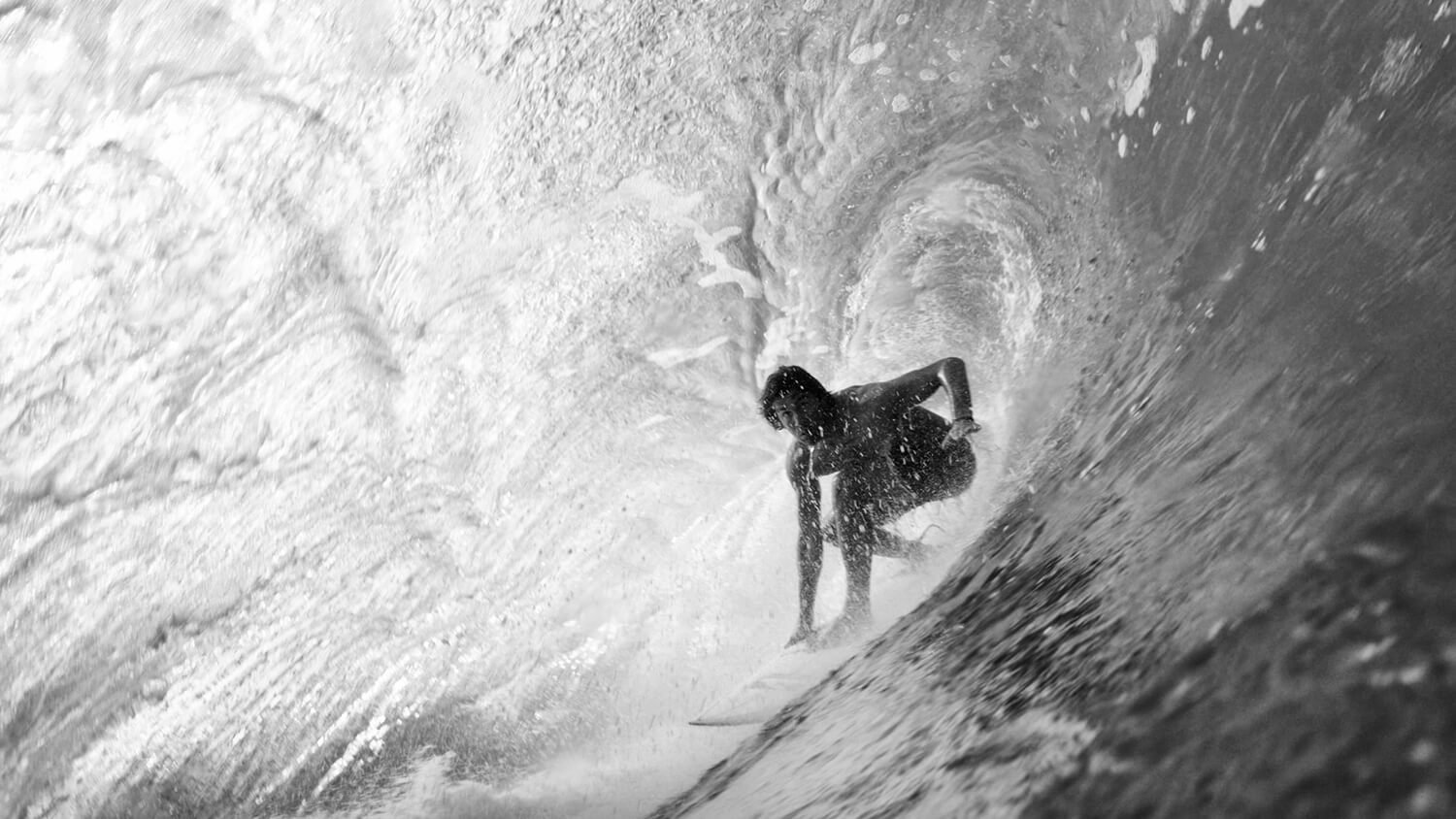The Network: Greg Long
Legendary big wave surfer • Environmentalist • Most decorated surfer in the Billabong XXL Global Big Wave Awards • Has surfed and survived the Cortes Bank – the ‘Mt Everest of Surfing’ • Home wave: Todos Santos
Greg Long is one of the most influential and successful big wave surfers of all time. Growing up in a state park on the coast of Southern California, he fell in love with the ocean as a kid and caught his first wave at age five. Going pro at 18, Greg won the Red Bull Big Wave Africa event a year later and went on to win awards for rides at Waimea Bay, Maverick’s, Jaws and other legendary big wave sites. On a 2008 expedition to the remote Cortes Bank off the coast of California, Greg caught a wave estimated by fellow surfers at between 80-90 feet high on a break that many consider to be ‘the Mount Everest of the ocean’.
Beyond surfing, Long is an explorer and passionate activist for the oceans, working with environmental groups like Parley to help protect the oceans through awareness and education. In addition to countless surfing awards, he was also a nominee for the 2014 National Geographic Adventurer of the Year Award. His work as a Parley Ambassador includes education programs like Parley Ocean School and talks at events like UN World Ocean Day.
“We've created a society built on convenience and with a throwaway mentality that things are only meant to be used once, but you've got a material that lives on forever.”
Greg Long — Big Wave Surfer
The above image of Greg, in the words of photographer Al Mackinnon: “I've been blessed to have seen some breathtaking sights, but this particular moment will live long in the memory. This photograph of Greg Long riding this monster at Dungeons, South Africa, won Greg and me the Billabong XXL Biggest Wave Award 2006/7 (now WSL Big Wave Awards) for ride and photograph. Incredibly, Greg is not just a phenomenal surfer, but also a gifted orator, particularly in raising awareness for environmental causes worldwide.”
A short interview with Greg from World Oceans Week 2018
When was the last time you felt a deep connection to the ocean?
I have that connection with the ocean any time I'm near it, now more so than ever. The most recent moment, I was down in Baja, surfing a small point break, just me and my brother, and dolphins came by in the morning. We were just on longboards cruising, but for me that was as amazing of a session as the last time I had the opportunity of surfing a giant wave. It's all perspective, and again, when you slow yourself down and you look at the magic that exists, especially within the act of riding waves, it's special, and every single day that I'm out there, I'm truly grateful for the opportunity.
As a surfer, you visit some pretty remote areas. How widespread is plastic pollution?
I've had the tremendous fortune of being able to travel some of the most remote coastlines in the world for the past 20 years, and I can honestly say that plastic pollution is an issue just about every single coastline in the world. If it's not there yet, it's only a matter of time, that in my short tenure traveling, I've seen a lot of dramatic changes, places when I first visited, being pristine, unadulterated, even one, two, five years later, it's a completely different scenario, so it's a global problem, no doubt about it.
What role can surfers and the surf industry play?
The surf community has a significant role to play, and if I'm to be perfectly honest, given the amount of time and how our lives are essentially built around the oceans, I've been frustrated to see how slow we've been to react, especially the businesses. You know, the surf community is one of the most influential, I guess communities in the world, you know? It's an all-encompassing lifestyle that's built upon these waves and natural resources. And many of them have been very slow to react and seeing this problem, that there is very viable solutions within, in the production of the materials that they're making their clothes out of, making the surfboards out of.
Do you think that’s changing now?
It's come to this tipping point now where you can no longer stand by the wayside and do nothing, and as a business, it's becoming recognized. If you are one who is not actively participating in changing your business, and seeking out alternative means of manufacturing, and going the extra mile to help educate others and really shift the paradigm, those businesses are kind of being shied away from by the consumer. You know, the consumer wants to be involved, and engaged, and supporting something that they believe in, and in the 10, 15 years that I've really been active in this space, I'd say that within the last one or two is when it's all really, I feel like, finally being galvanized, after the years of the different organizations sending the message, that it's finally getting through, and we're seeing big shifts.
How important is collaboration going to be?
Collaboration is of the utmost importance. You have to be reaching every single different demographic, age group, business archetype, that plastic is utilized in so many ways and forms, and in our daily lives, so you have to be sitting together and thinking with minds that come from different walks of life, that will have solutions. What works in one geographical region of the world or one type of business isn't going to necessarily transfer over to another, so it's sitting down together, looking at the scope of the problem, which is enormous, but knowing that we all have an imperative role to play if we're going to find the solutions.


















